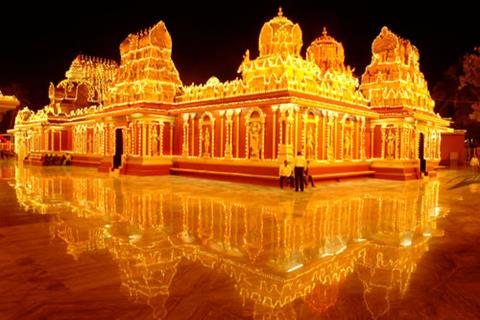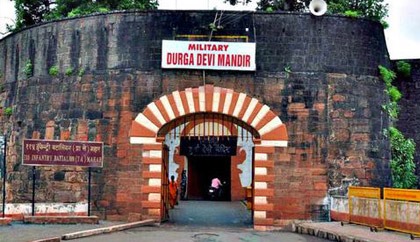Erode, Tamil Nadu City Guide: Where To Go, Stay, Eat, And shop in India’s best city.
Erode, also known as Erodu, is a major city in the Indian state of Tamil Nadu. It is located on the banks of the Cauvery River and is known for its agricultural, industrial, and textile significance. Erode is often referred to as the “Turmeric City” and “Textile City of South India” due to its prominence in turmeric trading and textile manufacturing. Here’s an overview of Erode:
Location and Connectivity
- Geographical Position: Erode is situated in the western part of Tamil Nadu, near the confluence of the Cauvery and Bhavani rivers. It lies in the Kongu Nadu region, which is historically significant in Tamil culture.
- Transport Links:
- Railway: Erode Junction is a major railway hub, connecting the city to other parts of Tamil Nadu and India. It is a key station on the Southern Railway network.
- Road: Erode is well-connected by national highways (NH-544 and NH-381) and state highways, linking it to cities like Coimbatore, Salem, Tiruppur, and Chennai.
- Airport: The nearest airport is Coimbatore International Airport, about 90 kilometers away.
Economy
Erode is a thriving economic center, known for its agricultural and industrial contributions.
Agriculture:
- Turmeric: Erode is one of the largest producers and traders of turmeric in India. The city hosts the Erode Turmeric Market, one of the largest turmeric markets in Asia.
- Other Crops: The region also produces cotton, sugarcane, coconut, and rice, thanks to the fertile soil and irrigation from the Cauvery and Bhavani rivers.
Textile Industry:
- Erode is a major hub for textile manufacturing, particularly cotton and handloom products. The city is known for its Kongu Nadu sarees and other traditional textiles.
- Tiruppur, a nearby city, is a global center for knitwear, and Erode contributes significantly to its supply chain.
Other Industries:
- Erode has a growing presence in industries like oil extraction, engineering, and food processing.
- The Perundurai SIPCOT Industrial Estate, located about 20 kilometers from Erode, houses several large-scale industries.
Culture and Heritage
- Kongu Nadu Culture: Erode is part of the Kongu Nadu region, which has a distinct cultural identity within Tamil Nadu. The region is known for its traditional music, dance, and cuisine.
- Festivals:
- Pongal: The harvest festival is celebrated with great enthusiasm.
- Thiruvizha: A local festival celebrated at the Sangameswarar Temple in Bhavani, near Erode.
- Maha Shivaratri: Devotees throng the Thindal Murugan Temple and other Shiva temples in the region.
- Cuisine: Erode is known for its Kongu-style cuisine, which includes dishes like Kongu Biryani, Arisi Paruppu Sadam, and Kambu Koozh.
Tourist Attractions
Erode and its surrounding areas offer several cultural, religious, and natural attractions:
- Bhavani Sangameswarar Temple: Located at the confluence of the Cauvery and Bhavani rivers, this temple is a significant pilgrimage site.
- Thindal Murugan Temple: A famous temple dedicated to Lord Murugan, located on a hillock with panoramic views of Erode.
- Kodumudi: A small town near Erode, known for its ancient temples and scenic beauty.
- Vellode Bird Sanctuary: Located about 15 kilometers from Erode, it is home to a variety of migratory and resident birds.
- Chennimalai: A nearby town known for its handloom industry and the Chennimalai Murugan Temple.
Education and Healthcare
- Educational Institutions: Erode has several schools, colleges, and professional institutions, including engineering and arts colleges. The Kongu Engineering College in Perundurai is one of the most reputed institutions in the region.
- Healthcare: The city has well-equipped hospitals and healthcare centers, providing quality medical services to residents.
Challenges
- Water Management: Despite being near the Cauvery River, water scarcity is a recurring issue due to uneven distribution and overuse.
- Urbanization: Rapid urbanization has led to challenges like traffic congestion, waste management, and pollution.
- Industrial Pollution: The textile and dyeing industries contribute to water and air pollution, necessitating better environmental regulations.
Conclusion
Erode is a vibrant city that blends tradition with modernity. Its agricultural prowess, industrial growth, and cultural heritage make it a key city in Tamil Nadu. With its strategic location, strong economic base, and rich history, Erode continues to play a vital role in the development of the region. Efforts to address environmental and infrastructural challenges will ensure sustainable growth for the city in the future.

![Erode, Tamil Nadu City Guide: Where To Go, Stay, Eat, And shop in India’s best city. [Updated-2025]](https://traveloinfo.com/wp-content/uploads/2025/02/Erode-872x547.jpg)



![Bangalore, Karnataka City Guide: Where To Go, Stay, Eat, And shop in India’s best city. [Updated-2025]](https://traveloinfo.com/wp-content/uploads/2025/02/bangaloref.jpg)
![Hyderabad, Telangana City Guide: Where To Go, Stay, Eat, And shop in India’s best city. [Updated-2025]](https://traveloinfo.com/wp-content/uploads/2025/02/hydrabad1.jpg)
![Ahmedabad, Gujarat City Guide: Where To Go, Stay, Eat, And shop in India’s best city. [Updated-2025]](https://traveloinfo.com/wp-content/uploads/2025/02/ahemadabad1.jpg)